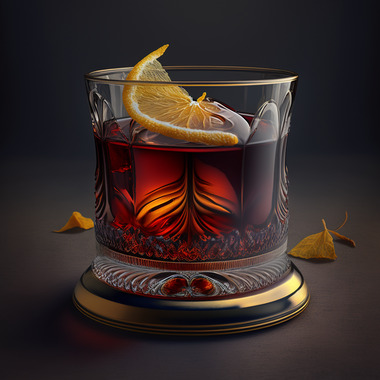Martini vs Boulevardier
Welcome to our captivating exploration of Martini and Boulevardier. In this journey, we delve into the intricate world of these two iconic cocktails, each a masterpiece in its own right. From the history-laden depths of Martini's origins to the innovative twists that define Boulevardier, we embark on a voyage through time and taste. These drinks are not just beverages; they are stories in a glass, experiences that transcend the ordinary and invite us into a realm of rich flavors and vibrant histories. Join us as we unravel the allure behind each cocktail, comparing and contrasting their unique identities in the vast tapestry of mixology.
While Martini uses gin, Boulevardier opts for bourbon as its main alcohol. The Martini is usually served in a martini glass, while the Boulevardier is often presented in a old fashioned glass.
Embark with us on a sensorial expedition as we unravel the nuances and subtleties that distinguish these two beverages. Discover how their individual ingredients come together in a symphony of flavors, how their histories intertwine with cultural trends, and how their serving styles enhance the overall drinking experience. It's not just a comparison of tastes, but a journey through the art and science of cocktail crafting, revealing the similarities and differences that render each cocktail uniquely captivating and endlessly enjoyable.
Martini

Boulevardier

Ingredients
- 2 1/2 oz gin
- 1/2 oz dry vermouth
- Lemon twist or green olive, for garnish
- Ice (optional)
- 1 1/2 oz bourbon
- 1 oz sweet vermouth
- 1 oz Campari
Recipe
- Chill a martini glass in the freezer or by filling it with ice and water and letting it sit while you prepare the cocktail.
- In a mixing glass, combine the gin and dry vermouth.
- Fill the mixing glass with ice and stir until well chilled.
- Strain the mixture into the chilled martini glass.
- Garnish with a lemon twist or a green olive.
- Fill a mixing glass with ice.
- Add bourbon, sweet vermouth, and Campari to the mixing glass.
- Stir for about 30 seconds until chilled.
- Place a large ice cube or several smaller ones in an Old Fashioned glass.
- Strain the cocktail into the glass.
- Express the oils from a piece of orange peel over the top of the cocktail.
- Rub the rim of the glass with the orange peel and drop it into the glass.
- Serve and enjoy.
Attributes
Main Alcohol: Gin
Color: Clear
Flavor Profile: Dry, Aromatic, Strong
Complexity: Medium
Popularity: Classic
Serving Glass: Martini Glass
Occasion: Formal Events, Evening Drink
Famous Origins: The Martini is one of the most iconic cocktails, characterized by its simplicity and elegance. Made traditionally with gin and dry vermouth, it is often garnished with an olive or a lemon twist.
Main Alcohol: Bourbon
Color: Deep Red
Flavor Profile: Bitter, Sweet, Strong
Complexity: Medium
Popularity: Unique
Serving Glass: Old Fashioned Glass
Occasion: Evening, Dinner Parties
Famous Origins: The Boulevardier, reminiscent of the Negroni but with bourbon replacing gin, has its origins in the American expatriate community in Paris during the 1920s.
As our exploration of Martini and Boulevardier comes to a close, we hope you've gained a deeper appreciation for the nuances that make each of these cocktails a standout in their own right. Whether it's the bold and unique flavors, the artful presentation, or the rich history behind each drink, there's always something new and exciting to discover in the world of cocktails.
Perhaps this comparison has inspired you to try these cocktails yourself, or maybe even to experiment with your creations. Remember, the beauty of mixology lies in the endless possibilities and personal touches you can bring to each glass. Cheers to your cocktail journey!